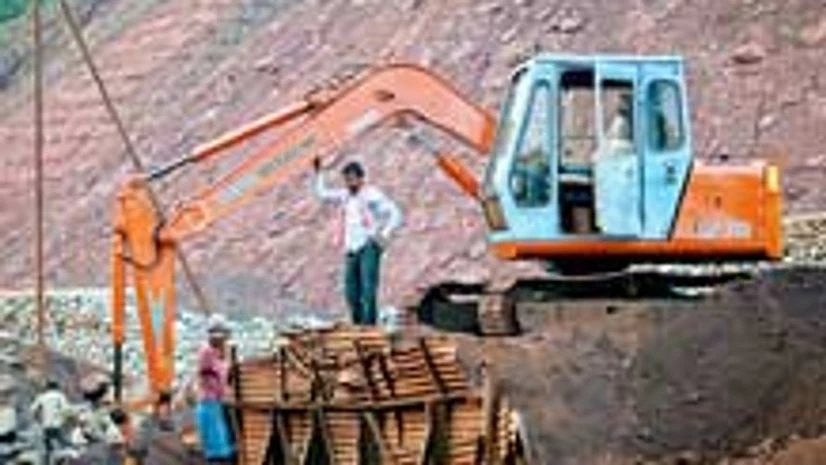The world is aware that Chinese steelmakers and investment groups are circling around distressed iron ore assets in Australia with a view to gaining control. Nothing surprising about the recent Chinese moves since these are part of by-now-long-established strategy of the world's largest producer and consumer of steel to secure future supply of iron ore.
But shouldn't some of our large producers of steel, which were forced to import rising quantities of iron ore in the past three years due to court-imposed curbs aimed at ending illegal mining, also consider buying assets in Australia and elsewhere when their valuations are so low? India, which not very long ago was the world's third largest exporter of ore, had to import 15.5 million tonnes in 2014-15 to supplement reduced domestic supplies. Our steelmakers would often complain about domestic ore suppliers charging premiums over world prices.
What will also be a justification for them to seek a presence in Australian iron ore landscape is the difficulty in securing iron ore deposits here and then long gestation in opening mines. This is despite the country sitting on the world's sixth largest iron ore resources estimated at well over 25 billion tonnes (bt). Business wanderlust led Indian groups in the past to acquire mines in more than one continent, though not all proved to be prized catches.
More From This Section
| NEW FRONTIERS |
|
In the years preceding the 2008 global financial crisis, China outsmarted every other country in buying oil to iron ore even venturing into most disturbed places in Africa. To court the favours of poor but resource-rich countries, Chinese investment in natural resources comes with commitment to developing infrastructure such as ports, roads and railways to give passage to mined minerals to the world market. While that gives it a lead over competing nations, including the US, Beijing's economic diplomacy has come in handy to expand its spheres of influence. At the same time, striking deals with authoritarian regimes in Africa have earned China the opprobrium of undermining human rights and struggles for democracy. But China is ready to court criticism to secure access to natural resources, particularly energy, iron ore and bauxite. The country makes steel in excess of 800 million tonnes (mt). But it mostly owns poor quality iron ore reserves. Bringing the local ore to usable grade after its mining and washing makes economic sense only if world prices of steel making ingredient stay at around $100 a tonne.
But not only are current prices down about 67 per cent from record levels in 2011, but more than one agency sees the possibility of ore trading at $40 a tonne starting 2016 under supply torrents. Price outlook being this grim, Chinese ore import dependence percentage could only rise from here.
According to Brazilian miner Vale, Chinese production of high-quality iron ore this year is likely to fall below 200 mt from 240 mt in 2014. No wonder, then, that reports of Chinese groups showing interest in providing debts or buying equity in distressed iron ore miners in Australia surface at regular intervals. The Chinese objective is to lock in supplies from Australian assets by doing the rescue act. What China is trying to do now is a repetition of what it did during and after the 2008 upheavals. The truth is whether it is iron ore or any other natural resource in dumps will meet with demand. The commodities' super cycle of the past decade sustained mostly by exploding Chinese demand encouraged tier-two and small iron ore producers to build new capacity. Now at crunch times, their valuations have hit the floor.
Two things are likely to happen now. After a decade of rapid growth, the Australian ore industry will see consolidation through mergers and acquisitions. Then in the longer run, says National Australia Bank economist Gerard Burg, "more companies from China and eventually India are expected to form partnerships with Australian miners".
Australia welcomes foreign investment in the mining sector. But not of the kind that Aluminium Corporation of China (Chinalco) attempted in 2009 to secure an 18 per cent ownership of Rio Tinto at an investment of $19.5 billion. The Rio board, initially responsive to Chinalco courtship, finally walked away from the deal due to shareholder opposition and anticipation of concern of regulators of China getting access to prized natural resources.
Now rumours are afloat that China's largest steelmaker Baosteel is eyeing Fortescue, the world's fourth biggest producer of iron ore. Fortescue has a huge debt pile. But will it capitulate at current low valuation or fight through the pain?

)
